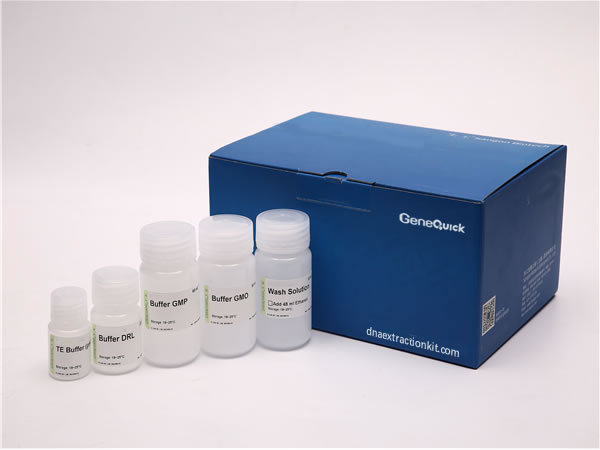What is Clinical DNA Extraction Kit for Genetic Testing?
A Clinical DNA Extraction Kit for Genetic Testing is a specialized laboratory tool designed to isolate high-quality DNA from clinical samples for genetic analysis. These kits are essential in medical diagnostics, enabling healthcare professionals to obtain pure DNA from blood, saliva, or tissues. The extracted DNA is then used in various genetic tests to identify mutations, inherited conditions, or predispositions to diseases. By providing a reliable and standardized method, these kits ensure accurate results, which are crucial for personalized medicine and patient care. They are widely used in hospitals, clinics, and research labs to support decisions in treatment and prevention strategies.
The process involves breaking down cells to release DNA, followed by purification to remove proteins and other contaminants. This kit is tailored for clinical settings, meaning it meets strict quality controls and is optimized for human samples. It helps in detecting genetic variants that might indicate risks for conditions like cancer, cardiovascular diseases, or genetic disorders. Overall, this kit plays a vital role in modern healthcare, making genetic testing more accessible and efficient for improving patient outcomes.

Technical Specifications
| Model | Method | Sample | Application | Format | Workflow |
|---|---|---|---|---|---|
| C-M-BLD-20R | Magnetic Beads | Blood | Clinical | 20R | Manual |
| C-M-BLD-50R | Magnetic Beads | Blood | Clinical | 50R | Manual |
| C-M-BLD-100R | Magnetic Beads | Blood | Clinical | 100R | Manual |
| C-M-BLD-200R | Magnetic Beads | Blood | Clinical | 200R | Manual |
| C-M-BLD-8R | Magnetic Beads | Blood | Clinical | 8R | Semi-automated or Full Automation |
| C-M-BLD-24R | Magnetic Beads | Blood | Clinical | 24R | Semi-automated or Full Automation |
| C-M-BLD-48R | Magnetic Beads | Blood | Clinical | 48R | Semi-automated or Full Automation |
| C-M-BLD-72R | Magnetic Beads | Blood | Clinical | 72R | Semi-automated or Full Automation |
| C-M-BLD-96R | Magnetic Beads | Blood | Clinical | 96R | Semi-automated or Full Automation |
Working Principle
The principle behind a Clinical DNA Extraction Kit for Genetic Testing involves a series of biochemical steps to separate DNA from other cellular components. It typically starts with lysis, where a buffer breaks open cells and nuclei to release DNA into solution. This is followed by digestion using enzymes to degrade proteins and RNA, leaving DNA intact. The kit then uses a binding matrix, such as silica-based columns or magnetic beads, to capture the DNA while washing away impurities like salts and cellular debris.
Finally, the DNA is eluted in a pure buffer solution, ready for analysis. This process leverages the affinity of DNA for specific surfaces under certain conditions, ensuring high purity. The principle is grounded in molecular biology techniques that are optimized for clinical samples, minimizing degradation and maximizing yield. By adhering to these steps, the kit ensures that the extracted DNA is of sufficient quality for sensitive genetic tests, providing a foundation for accurate and reproducible results in genetic diagnostics.
Performance
The performance of a Clinical DNA Extraction Kit for Genetic Testing is evaluated based on its efficiency in yielding high-purity DNA with minimal degradation. These kits are designed to work quickly, often completing extraction in under an hour, which is critical in time-sensitive clinical environments. They consistently produce DNA that is free from inhibitors, ensuring it is suitable for downstream applications like PCR, sequencing, or microarray analysis. High performance means that the DNA obtained has optimal concentration and integrity, leading to reliable test results that clinicians can trust for diagnosis.
In terms of reliability, these kits undergo rigorous validation to handle various sample types, such as whole blood or buccal swabs, without cross-contamination. They are optimized for automation, allowing integration into high-throughput workflows in labs. This enhances reproducibility and reduces human error, making genetic testing more scalable. Performance metrics include high DNA recovery rates and compatibility with advanced genetic technologies, supporting accurate detection of even low-abundance genetic markers essential for comprehensive genetic assessments.
Application
The Clinical DNA Extraction Kit for Genetic Testing finds applications in numerous areas of medicine and research. Primarily, it is used in diagnostic labs for testing genetic disorders, such as cystic fibrosis or Huntington's disease, by extracting DNA from patient samples. It also supports carrier screening to identify individuals who might pass on genetic conditions to their offspring. In oncology, this kit helps isolate DNA from tumor samples to detect mutations that guide targeted therapy decisions, improving cancer treatment outcomes.
Additionally, it is employed in pharmacogenetics to understand how genes affect drug response, enabling personalized medication plans. In prenatal testing, it extracts DNA from maternal blood for non-invasive procedures to assess fetal health. Beyond diagnostics, these kits are used in research studies to explore genetic variations in populations, aiding in the development of new therapeutic approaches. Their versatility makes them indispensable in advancing genetic medicine and public health initiatives.
Core Features and Advantages
The core features of a Clinical DNA Extraction Kit for Genetic Testing include its high efficiency, user-friendly design, and compatibility with automated systems. It offers rapid processing times, often complete within 30-60 minutes, which is essential for clinical workflows where speed matters. The kit is designed to handle small sample volumes, reducing the need for large amounts of biological material, and it includes all necessary reagents pre-measured for convenience. This minimizes preparation time and reduces the risk of errors.
Advantages of using this kit include its ability to produce high-yield, inhibitor-free DNA that is ideal for downstream genetic analyses like next-generation sequencing. It ensures consistency across batches, supporting reliable diagnostics. The kit is also scalable, suitable for both low-volume and high-throughput labs, and it meets regulatory standards for clinical use. By providing a standardized method, it enhances lab efficiency, reduces costs, and improves patient care through faster and more accurate genetic testing outcomes.